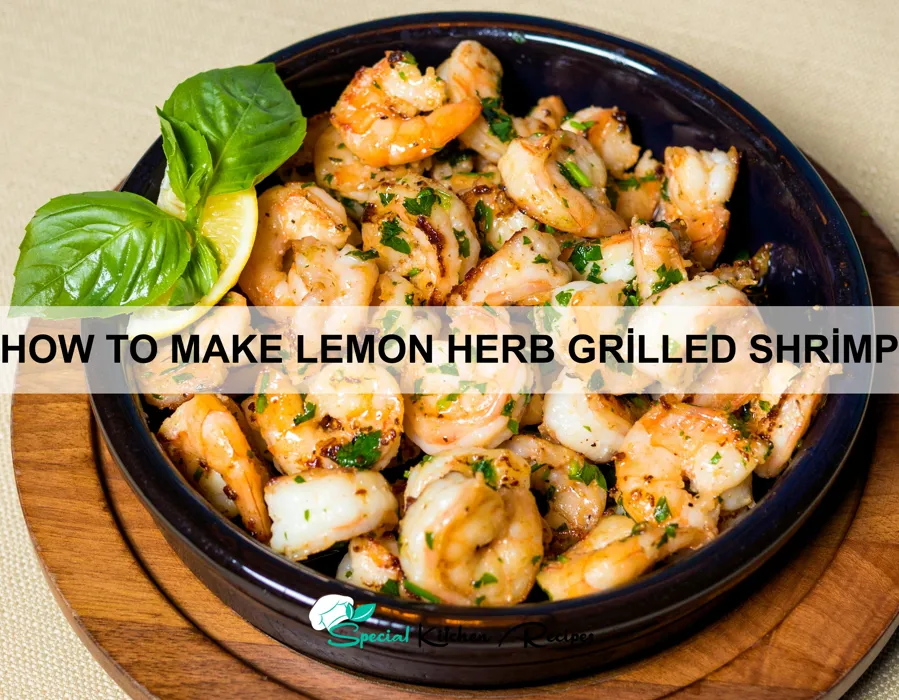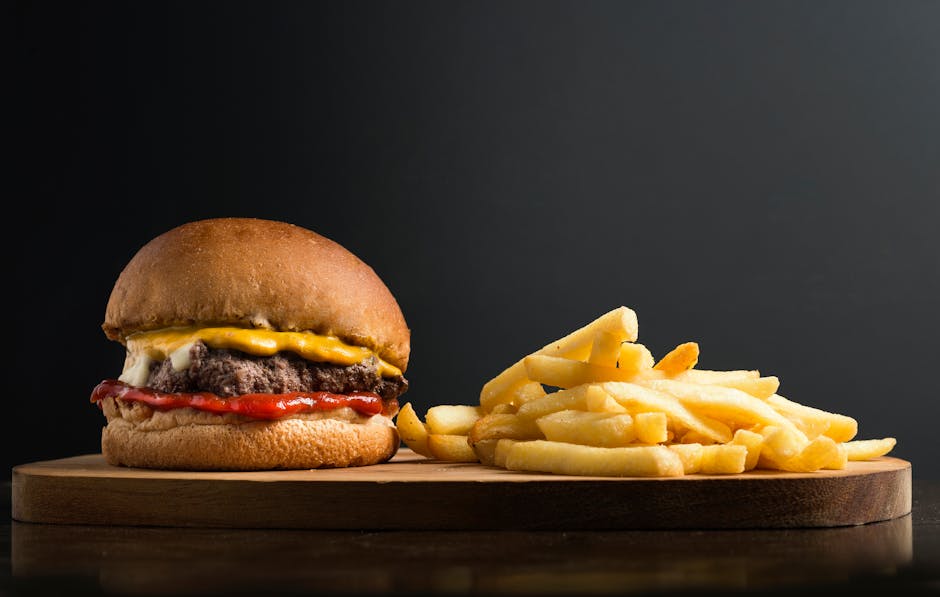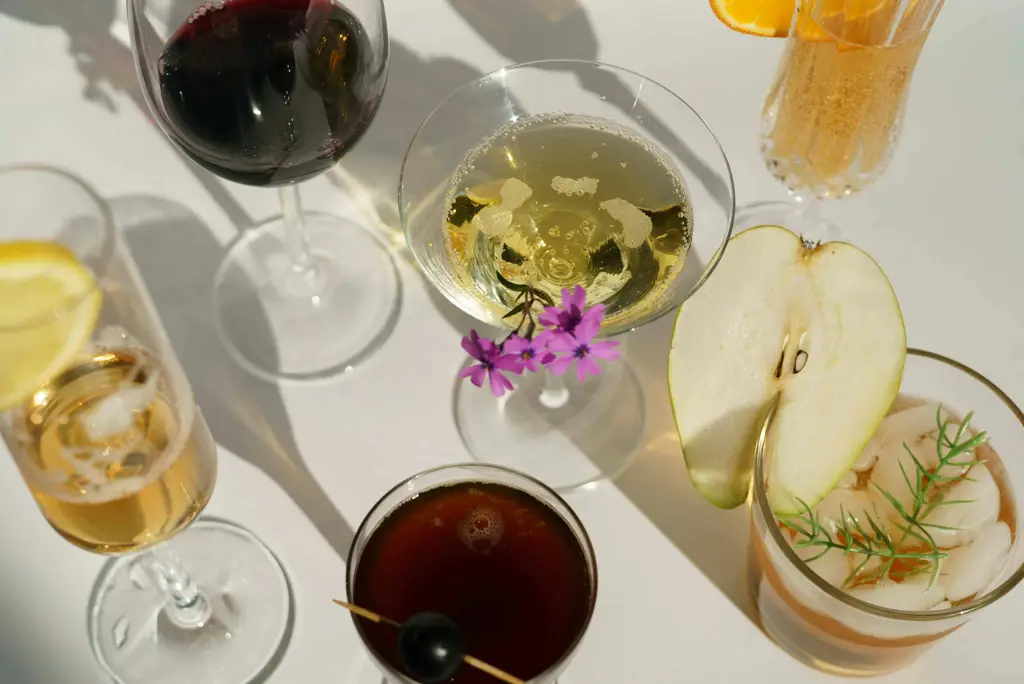Lemon herb grilled shrimp, a seemingly simple dish, boasts a surprisingly rich history interwoven with the culinary traditions of various coastal cultures. While pinpointing a precise origin is difficult, the practice of grilling seafood, particularly shrimp, dates back millennia. Archaeological evidence suggests that humans have been enjoying grilled seafood for at least 10,000 years, with evidence of shellfish consumption found in numerous ancient settlements. The use of herbs and citrus, however, adds a layer of complexity tied to Mediterranean and coastal European cuisines. Ancient Greeks and Romans were known to use herbs liberally in their cooking, and citrus fruits, though not as readily available as today, were incorporated into their dishes when possible, suggesting a culinary ancestor to our modern dish.
The specific combination of lemon and herbs with grilled shrimp likely emerged more recently, possibly as a result of the increased trade and exchange of ingredients following the Age of Exploration. The introduction of diverse herbs and spices from the East and the wider availability of citrus fruits in Europe led to innovative culinary combinations. The popularity of grilling as a cooking method, particularly in the Mediterranean region and later across the Americas, naturally combined with the delicate flavor profile of shrimp to create a dish that is both simple and sophisticated. Today, lemon herb grilled shrimp is a global favorite, appearing on menus from casual restaurants to upscale eateries, reflecting its versatility and widespread appeal.
Beyond its deliciousness, lemon herb grilled shrimp holds cultural significance in many regions. In the Mediterranean, grilled seafood is a staple, often enjoyed as a light and refreshing meal, especially during warmer months. The use of fresh herbs reflects the importance of local, seasonal ingredients in these cultures. In the United States, it’s a popular summer dish, frequently appearing at barbecues and outdoor gatherings, symbolizing relaxation and social connection. Shrimp consumption statistics show it is one of the most popular seafood choices globally, with global production exceeding 7 million metric tons annually. This widespread consumption highlights the enduring appeal of this versatile crustacean and the culinary creativity it inspires.
Ingredients and Measurements
This recipe for Lemon Herb Grilled Shrimp yields approximately 4 servings. Accurate measurements are crucial for achieving the perfect balance of flavors and ensuring even cooking. We recommend using a kitchen scale for the most precise results, especially when measuring the shrimp.
Shrimp: 1 pound (450g) large shrimp, peeled and deveined. Important: Ensure your shrimp are completely thawed before grilling. Overly large shrimp may require longer grilling time, leading to overcooking. If using frozen shrimp, plan ahead and thaw them overnight in the refrigerator. Smaller shrimp, such as 21-25 count per pound, will cook quicker.
Lemon: 1 large lemon, zested and juiced. Using both the zest and juice provides a vibrant lemon flavor. Recommendation: Use a microplane grater for the zest to obtain the finest, most flavorful particles. Avoid using a standard grater, which can create bitter-tasting shreds.
Fresh Herbs: 1/4 cup (6g) chopped fresh herbs. We recommend a combination of parsley (2 tablespoons), oregano (1 tablespoon), and thyme (1 tablespoon). Tip: Fresh herbs offer superior flavor compared to dried herbs. If using dried herbs, use approximately 1/3 of the amount specified. Feel free to experiment with other fresh herbs like chives, dill, or rosemary.
Garlic: 2 cloves garlic, minced. Note: Freshly minced garlic provides the best flavor. If using pre-minced garlic from a jar, reduce the amount slightly as it tends to be more potent.
Olive Oil: 2 tablespoons (30ml) extra virgin olive oil. This provides moisture and helps the shrimp to brown beautifully on the grill. Professional Tip: Use a high-quality extra virgin olive oil for the best flavor.
Seasoning: 1 teaspoon salt and 1/2 teaspoon black pepper. Adjust the seasoning to your taste preference. Important: Season the shrimp generously – don’t be shy with the salt and pepper.
Optional: 1 tablespoon butter, for basting during grilling. Adding butter towards the end of the grilling process will enhance the richness and flavor of the shrimp.
Note: All measurements listed are approximate and can be adjusted to suit your personal preferences and the number of servings.
Equipment List
To successfully grill delicious lemon herb shrimp, having the right equipment is crucial. This list details the necessary tools, with recommendations for optimal performance and ease of use.
Grill: You’ll need a grill, either charcoal or gas. A gas grill offers more precise temperature control, making it ideal for delicate shrimp. If using a charcoal grill, ensure you have enough charcoal briquettes to achieve a medium-high heat (approximately 375-400°F or 190-205°C). A thermometer is essential for monitoring the grill temperature accurately, regardless of the type of grill used.
Grill Tools: A sturdy pair of tongs is vital for safely flipping and maneuvering the shrimp on the hot grill grates. A grill spatula, though not strictly necessary, can be helpful for lifting and serving. Invest in long-handled tools to keep your hands a safe distance from the heat. A grill brush is necessary for cleaning the grates before and after grilling. Choose one with sturdy bristles that can effectively remove any stuck-on food particles.
Shrimp Skewers (optional but recommended): Using skewers allows for easier handling and even cooking of the shrimp. Soak wooden skewers in water for at least 30 minutes before grilling to prevent them from burning. Metal skewers are a good alternative as they don’t require soaking. Aim for skewers that are approximately 12 inches long. You will need approximately 8-10 skewers depending on the amount of shrimp you are using. Plan for approximately 4-5 shrimp per skewer.
Measuring Tools: Accurate measurements are key to achieving the perfect flavor balance. You’ll need measuring spoons (1 teaspoon, 1/2 teaspoon, 1/4 teaspoon) and measuring cups (1 cup, 1/4 cup, 1 tablespoon). A kitchen scale is also useful for precise measurements of ingredients, particularly the shrimp. Digital scales offer greater accuracy than analog scales.
Prep Tools: A large bowl for marinating the shrimp is essential. A cutting board and a sharp knife are needed for prepping the herbs. A citrus juicer will help you extract the maximum amount of lemon juice for the marinade. Paper towels will be useful for patting the shrimp dry.
Serving Utensils: Once the shrimp are cooked, you’ll need serving plates and utensils. A serving bowl or platter is ideal for presenting the grilled shrimp. Consider using tongs or a serving spoon to avoid damaging the shrimp.
Shrimp Preparation (Cleaning and Marinating)
Before you begin grilling, proper shrimp preparation is key to achieving succulent and flavorful results. This section details how to clean and marinate your shrimp for the perfect lemon herb grilled shrimp.
Choosing your shrimp: Start with 1 pound of fresh, raw shrimp, ideally 16-20 count (meaning 16-20 shrimp per pound). Larger shrimp will cook more quickly, while smaller shrimp offer a more delicate texture. Ensure the shrimp are firm and smell fresh, with no fishy odor.
Cleaning the shrimp: If your shrimp have their heads and shells on, you’ll need to devein them. To do this, gently rinse the shrimp under cold running water. Using a small, sharp knife or a toothpick, carefully make a shallow slit along the back of each shrimp, exposing the dark vein. Remove the vein by gently pulling it out with the tip of your knife or toothpick. Discard the vein. If your shrimp are already peeled and deveined, simply rinse them thoroughly under cold water.
Patting them dry: Once cleaned, pat the shrimp dry with paper towels. Excess moisture will hinder the grilling process and prevent proper browning. This step is crucial for achieving a beautiful sear on the grill.
Marinating the shrimp (makes enough for 1 pound of shrimp): In a medium-sized bowl, whisk together the following ingredients: 1/4 cup olive oil, 2 tablespoons lemon juice (freshly squeezed is best!), 1 tablespoon chopped fresh parsley, 1 tablespoon chopped fresh dill, 2 cloves garlic (minced), 1/2 teaspoon salt, and 1/4 teaspoon black pepper. Adjust seasonings to your taste. Add the cleaned and dried shrimp to the marinade, ensuring they are evenly coated. Cover the bowl and refrigerate for at least 30 minutes, or up to 2 hours. Marinating for longer will infuse the shrimp with more flavor, but avoid marinating for too long as it can make the shrimp mushy.
Before grilling: Remove the shrimp from the marinade and discard the marinade. Do not grill the shrimp directly from the marinade, as it can cause flare-ups on the grill. Gently shake off any excess marinade from the shrimp before placing them on the preheated grill.
Following these steps will guarantee perfectly prepared shrimp, ready to be grilled to delicious perfection!
Herb and Lemon Mixture Preparation
Creating the perfect herb and lemon mixture is crucial for infusing your grilled shrimp with vibrant flavor. This recipe uses fresh herbs for the best aroma and taste, but you can substitute dried herbs if necessary (use about 1/3 the amount). Remember to adjust quantities based on the amount of shrimp you’re grilling. This recipe is designed for approximately 1 pound of shrimp.
Begin by gathering your ingredients: 1/4 cup of fresh parsley, finely chopped; 2 tablespoons of fresh chives, finely chopped; 1 tablespoon of fresh thyme leaves, roughly chopped; 2 cloves of garlic, minced; and the zest and juice of one large lemon. Ensure your herbs are thoroughly washed and dried before chopping to avoid excess moisture. Excess moisture can lead to steaming rather than grilling, resulting in less flavorful shrimp.
In a medium-sized bowl, combine the chopped parsley, chives, and thyme. Thoroughly mix the herbs to ensure even distribution of flavors. Then, add the minced garlic and lemon zest. The lemon zest adds a bright, citrusy note that complements the herbs perfectly. Gently incorporate the zest into the herb mixture.
Next, add the lemon juice to the bowl. Start with half of the lemon juice and gradually add more, tasting as you go. The amount of lemon juice needed will depend on your preference for tartness. Some prefer a more pronounced lemon flavor, while others prefer a subtler touch. The goal is to achieve a balanced mixture where the lemon juice brightens the herbal notes without overpowering them.
Once you’ve achieved your desired level of tartness, gently toss the mixture to ensure all the herbs are evenly coated with the lemon juice. Avoid overmixing, as this can bruise the herbs and release excessive moisture. Taste the mixture and adjust seasoning as needed. A pinch of salt and freshly ground black pepper can enhance the overall flavor profile. Let the mixture sit for at least 15 minutes to allow the flavors to meld. This step is crucial for developing a complex and harmonious flavor profile.
Your herb and lemon mixture is now ready to be used to marinate your shrimp! Ensure the shrimp are thoroughly coated in the mixture before grilling for optimal flavor penetration.
Grilling Techniques for Perfect Lemon Herb Grilled Shrimp
Grilling shrimp requires a delicate touch to avoid overcooking and achieving that perfect balance of tender, juicy meat and a delightful char. This section outlines the techniques for grilling 1 pound of shrimp, but can be easily scaled up or down.
Preparation is Key: Before you even think about firing up the grill, ensure your shrimp are properly prepared. Pat them dry with paper towels. This is crucial for achieving a good sear and preventing them from sticking to the grill grates. Excess moisture is the enemy of a good grill mark!
Preheating Your Grill: Preheat your grill to medium-high heat (around 400-450°F). You should be able to hold your hand about 6 inches above the grates for only 3-4 seconds before it gets too hot. This ensures even cooking and prevents sticking. If using a gas grill, preheat for 10-15 minutes. For charcoal grills, let the coals burn down until they are covered with a light ash.
Oil the Grates: Lightly oil your grill grates using a high-heat oil like canola or vegetable oil. This prevents sticking and promotes beautiful grill marks. You can use a paper towel or a grill brush to apply the oil evenly. Don’t skip this step!
Grilling the Shrimp: Once the grill is hot, carefully place the shrimp on the pre-oiled grates. Avoid overcrowding the grill; leave some space between each shrimp for even cooking. Overcrowding will lower the temperature and result in steaming rather than grilling. Grill for 2-3 minutes per side, or until they turn pink and opaque throughout. The cooking time will depend on the size of your shrimp – larger shrimp will require slightly longer.
Checking for Doneness: The best way to check for doneness is to gently press on a shrimp. It should feel firm to the touch. Avoid overcooking, as overcooked shrimp will be tough and rubbery. If you’re unsure, err on the side of slightly undercooked, as the residual heat will continue to cook them.
Removing from the Grill: Once cooked, remove the shrimp from the grill and immediately transfer them to a plate. Allow them to rest for a minute or two before serving. This allows the juices to redistribute, resulting in more tender and flavorful shrimp. Resting is just as important as grilling.
By following these techniques, you’ll be well on your way to grilling perfectly delicious lemon herb shrimp every time.
Checking for Doneness
Perfectly grilled shrimp is juicy and opaque, with a beautiful pink hue. Overcooked shrimp, on the other hand, will be tough and rubbery. Therefore, accurately checking for doneness is crucial to achieving the best results. For approximately 1 pound of shrimp, grilling time will typically range from 2-4 minutes per side, depending on the size and thickness of the shrimp. However, relying solely on time is unreliable; visual and tactile cues are far more accurate.
The most reliable method is to check the shrimp’s internal temperature. Use a food thermometer inserted into the thickest part of a few shrimp. They are done when they reach an internal temperature of 145°F (63°C). This ensures the shrimp are cooked through while remaining tender. Do not overcook! Overcooked shrimp will be dry and tough.
Beyond temperature, visual cues are also helpful. Raw shrimp are translucent and have a grayish-pink color. As they cook, they turn opaque and take on a bright, vibrant pink color. Look for a complete change in color throughout the shrimp. There should be no remaining translucent areas.
In addition to visual cues, pay attention to the shrimp’s texture. Gently press on a shrimp with tongs or a spatula. Cooked shrimp will feel firm to the touch, but not hard or tough. If they feel mushy or overly soft, they are undercooked. If they are rock-hard, they are overcooked. This tactile test provides valuable feedback alongside the visual assessment.
Avoid overcrowding the grill grates. Overcrowding will lower the temperature, leading to uneven cooking and potentially undercooked shrimp in the center. Work in batches if necessary to ensure even cooking and accurate doneness checks. Remember, even small variations in shrimp size can affect cooking time, so always check multiple shrimp for doneness rather than relying on just one.
Finally, practice makes perfect. With experience, you’ll become adept at visually and tactically determining the doneness of your grilled shrimp without needing to constantly use a thermometer. However, using a thermometer, especially when you’re starting out, is the best way to guarantee food safety and perfectly cooked shrimp every time.
Recommendations
For optimal flavor, marinate the shrimp for at least 30 minutes, or up to 2 hours, allowing the herbs and lemon to infuse the delicate flesh. Don’t over-marinate, however, as this can make the shrimp tough.
Serving suggestions are plentiful! These grilled lemon herb shrimp are fantastic served over a bed of fluffy rice, quinoa, or couscous. A simple green salad with a light vinaigrette provides a refreshing contrast to the richness of the shrimp. Consider serving them with grilled vegetables like zucchini, bell peppers, and asparagus for a complete and healthy meal.
Storage: Leftover grilled shrimp should be stored in an airtight container in the refrigerator for up to 3 days. Avoid storing them at room temperature for extended periods to prevent bacterial growth. Reheat gently in a pan or microwave before serving.
To enhance the dining experience, consider pairing your lemon herb grilled shrimp with a crisp white wine, such as Sauvignon Blanc or Pinot Grigio. The acidity of the wine complements the bright lemon flavors in the dish perfectly. A squeeze of fresh lemon juice just before serving adds a burst of freshness.
Complementary dishes could include a creamy avocado sauce or a spicy cilantro-lime crema for dipping. A simple garlic aioli also pairs well with the grilled shrimp. For a more substantial meal, consider adding crusty bread to soak up any delicious pan juices.
Nutritional Information (per serving, approximate): This will vary depending on the exact ingredients and portion size. However, a typical serving could contain approximately 150-200 calories, 20-30g protein, 5-10g fat, and low carbohydrates. This is a good source of lean protein and healthy fats. Note: This is an estimate and should be verified using a nutrition calculator based on your specific recipe and ingredients.
Important Note: Always ensure your shrimp is cooked thoroughly to an internal temperature of 145°F (63°C) to ensure food safety. Enjoy!





